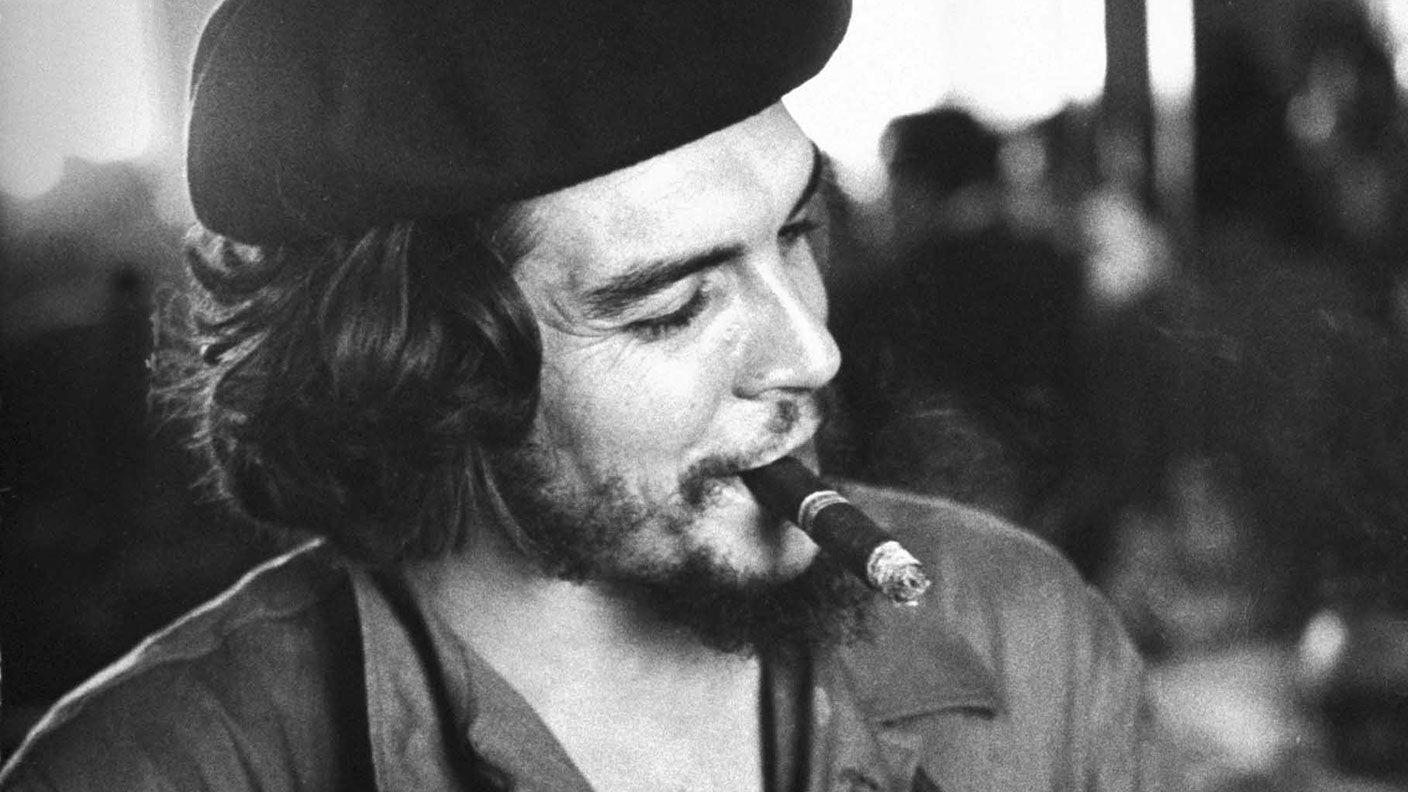9 October 1967: Che Guevara is executed in Bolivia
Having failed to stoke revolution in Bolivia, Ernesto 'Che' Guevara was captured by the army and executed on this day in 1967.


Get the latest financial news, insights and expert analysis from our award-winning MoneyWeek team, to help you understand what really matters when it comes to your finances.
You are now subscribed
Your newsletter sign-up was successful
Want to add more newsletters?
Perhaps no revolutionary is better known than Ernesto “Che” Guevara. Guevara was radicalised by his experiences while touring Latin America on a motorcycle. After qualifying as a doctor in 1953, he moved to Guatemala to back the government of Jacobo Árbenz, whose controversial land reform programme saw his downfall in a military coup a year later.
There, Guevara met Cuban revolutionary Fidel Castro. He followed Castro into Cuba in 1956 and played a key role in the guerrilla war that saw president Fulgencio Batista exiled on New Year's Day 1959. Guevara helped Castro consolidate power, executing his opponents and managing land nationalisation. He arranged for the USSR to position missiles within Cuba, setting off 1962's Cuban missile crisis. Yet in time, his criticisms of the USSR as insufficiently communist led to a break with Castro.
In 1965, he left Cuba to stoke revolution around the world. After an ill-fated stint in the Congo, he left for Bolivia to fight the military government. The superior training of the Bolivian army, poor relations with local communists, and antipathy from the locals saw his forces suffer a string of defeats. In October 1967, he was surrounded and forced to surrender to the army, and was executed the next day.
Try 6 free issues of MoneyWeek today
Get unparalleled financial insight, analysis and expert opinion you can profit from.

Sign up to Money Morning
Don't miss the latest investment and personal finances news, market analysis, plus money-saving tips with our free twice-daily newsletter
Don't miss the latest investment and personal finances news, market analysis, plus money-saving tips with our free twice-daily newsletter
His charisma and early death (at 39) saw him become a symbol of revolution. Ironically, an iconic image of Guevara, taken in 1960 by Alberto Korda, working for a Cuban newspaper, has been used to sell everything from T-shirts to typewriters. However, in 2000, Smirnoff vodka had to pay Korda $50,000 (which he donated to the Cuban medical system) when it tried to use the picture in its advertising.
Get the latest financial news, insights and expert analysis from our award-winning MoneyWeek team, to help you understand what really matters when it comes to your finances.

-
 8 of the best properties for sale with minstrels’ galleries
8 of the best properties for sale with minstrels’ galleriesThe best properties for sale with minstrels’ galleries – from a 15th-century house in Kent, to a four-storey house in Hampstead, comprising part of a converted, Grade II-listed former library
-
 The rare books which are selling for thousands
The rare books which are selling for thousandsRare books have been given a boost by the film Wuthering Heights. So how much are they really selling for?
-
 31 August 1957: the Federation of Malaya declares independence from the UK
31 August 1957: the Federation of Malaya declares independence from the UKFeatures On this day in 1957, after ten years of preparation, the Federation of Malaya became an independent nation.
-
 13 April 1960: the first satellite navigation system is launched
13 April 1960: the first satellite navigation system is launchedFeatures On this day in 1960, Nasa sent the Transit 1B satellite into orbit to provide positioning for the US Navy’s fleet of Polaris ballistic missile submarines.
-
 9 April 1838: National Gallery opens in Trafalgar Square
9 April 1838: National Gallery opens in Trafalgar SquareFeatures On this day in 1838, William Wilkins’ new National Gallery building in Trafalgar Square opened to the public.
-
3 March 1962: British Antarctic Territory is created
Features On this day in 1962, Britain formed the British Antarctic Territory administered from the Falkland Islands.
-
10 March 2000: the dotcom bubble peaks
Features Tech mania fanned by the dawning of the internet age inflated the dotcom bubble to maximum extent, on this day in 2000.
-
9 March 1776: Adam Smith publishes 'The Wealth of Nations'
Features On this day in 1776, Adam Smith, the “father of modern economics”, published his hugely influential book The Wealth of Nations.
-
 8 March 1817: the New York Stock Exchange is formed
8 March 1817: the New York Stock Exchange is formedFeatures On this day in 1817, a group of brokers moved out of a New York coffee house to form what would become the biggest stock exchange in the world.
-
7 March 1969: Queen Elizabeth II officially opens the Victoria Line
Features On this day in 1969, Queen Elizabeth II took only her second trip on the tube to officially open the underground’s newest line – the Victoria Line.